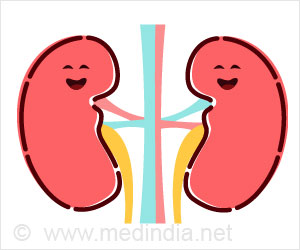Eating foods naturally high in glutathione may help increase glutathione levels which positively affects a person’s motivation levels.
- Motivating people to perform tasks is important, and both internal and external variables can have an impact
- To what extent the brain influences motivation remains a mystery to scientists
- According to a recent study, motivation levels may be impacted by levels of the antioxidant glutathione, which can be raised through dietary and lifestyle changes
By eating foods high in sulfur, such as meat, eggs, and cereals, as well as more dairy and whey protein, one can enhance their glutathione levels.
Ecole Polytechnique Federale de Lausanne (EPFL) and Nestle carried out the study.
Motivation-Influencing Factors
Trusted Source depends on people’s drive and perseverance to complete tasks and achieve objectives. People who are motivated achieve success in their careers and other areas of life, which enables them to meet their needs. Environment, history, and physical health are only a few of the variables that affect motivation. Many hypotheses have been proposed by experts to try to understand what motivates people. Experts still don’t fully comprehend a lot of the motivation’s underlying mechanisms, though.Motivation and the Antioxidant Glutathione
Researchers examined how antioxidant levels and oxidative stress may affect motivation in this study. The damaging chemicals (free radicals) the body creates as a consequence of metabolism are what the term ‘oxidative stress’ refers to. These free radicals can be neutralized by antioxidants.Glutathione is one of the most prevalent antioxidants in the brain (GSH).
The chief medical officer and co-founder of ToolBox Genomics, Dr. Erika Gray, who was not engaged in the study, said, “One way your body clears oxidative stress is through antioxidants, and glutathione is one of the primary antioxidants. Glutathione is your body’s internal antioxidant, and it is made in the liver from the amino acids’ cysteine, glutamate, and glycine.”
Contrary to most antioxidants originating from plants, glutathione is a substance that the liver can naturally manufacture. However, it is also recognized that levels of this antioxidant normally decline as we age. It may be crucial to consume additional glutathione through food as a result.
Researchers examined the relationship between this antioxidant’s concentration and motivation in the nucleus accumbens, a particular region of the brain. First, GSH levels in rat and human brains were analyzed using proton magnetic resonance spectroscopy (Reliable Source).
They discovered that greater levels of GSH were linked to more reliable and superior performance in demanding activities.
They were subsequently able to investigate causality more thoroughly using rat experiments. They discovered that lowering GSH levels decreased the effort required of rats to accomplish effort-based activities.
Rats’ performance improved when they were given a precursor to GSH to raise brain GSH levels.
Author of the study and director of the Brain Mind Institute’s Laboratory of Behavioral Genetics at EPFL in Switzerland, Professor Carmen Sandi, said, “We found that the actual levels of the most important antioxidant in the nucleus accumbens- a part of the ventral striatum and a hub of the brain motivational system- determine the capacity to keep exerting effort over time to obtain rewards…our study suggests that the antioxidant system in the brain hub for motivation is critical to determine our capacity to keep going with tasks that require an effort but provide advantages for us/rewards.”
Does Motivation Depend only on Nutrition
The reader should consider the study’s limitations. First, rats were used in a portion of the study, which can only offer restricted data. Second, in the human-based research that was conducted, only male volunteers were used in the analysis, resulting in information about a subset of the population.Additionally, the study only used a tiny sample size, underscoring the requirement for additional study.
Prof. Sandi identified a few topics that require more study.
“We need to perform a larger scale study, stratifying individuals for differences in the content of glutathione in the nucleus accumbens and studying how nutritional- or pharmacological- interventions can help improve their capacity to keep going with tasks and effort exertion,” she said.
Prof. Sandi said, “Would all individuals benefit equally, or [would the results] be particularly positive for those displaying low levels of the antioxidant glutathione? And what scheme of administration would be more efficient?”
Overall, the study highlights a potential underlying factor to motivation levels and highlights numerous avenues for future investigation. Due to the presence of glutathione in some foods, eating may be an important factor in elevating the body’s glutathione levels.
“Eating foods naturally high in glutathione such as asparagus, raw avocado, potatoes, [and] raw spinach, may help increase glutathione levels. People can work with their doctors and nutrition specialists to create a dietary plan that fits their needs, including increasing antioxidant levels,” said Dr. Erika Gray
Source-Medindia
















